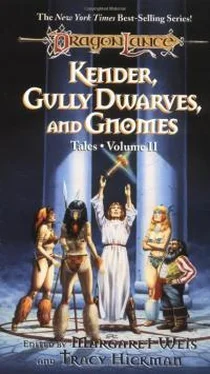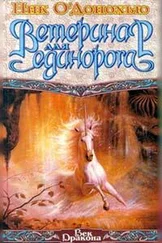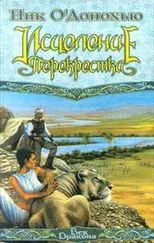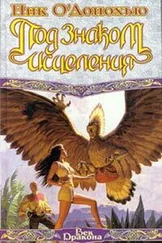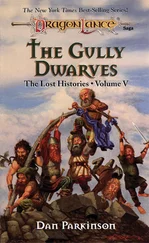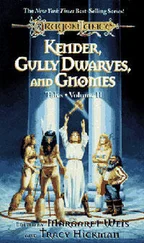Ник О'Донохью - Kender, Gully Dwarves, and Gnomes
Здесь есть возможность читать онлайн «Ник О'Донохью - Kender, Gully Dwarves, and Gnomes» весь текст электронной книги совершенно бесплатно (целиком полную версию без сокращений). В некоторых случаях можно слушать аудио, скачать через торрент в формате fb2 и присутствует краткое содержание. Год выпуска: 1987, Жанр: Фэнтези, на английском языке. Описание произведения, (предисловие) а так же отзывы посетителей доступны на портале библиотеки ЛибКат.
- Название:Kender, Gully Dwarves, and Gnomes
- Автор:
- Жанр:
- Год:1987
- ISBN:нет данных
- Рейтинг книги:5 / 5. Голосов: 1
-
Избранное:Добавить в избранное
- Отзывы:
-
Ваша оценка:
- 100
- 1
- 2
- 3
- 4
- 5
Kender, Gully Dwarves, and Gnomes: краткое содержание, описание и аннотация
Предлагаем к чтению аннотацию, описание, краткое содержание или предисловие (зависит от того, что написал сам автор книги «Kender, Gully Dwarves, and Gnomes»). Если вы не нашли необходимую информацию о книге — напишите в комментариях, мы постараемся отыскать её.
Kender, Gully Dwarves, and Gnomes — читать онлайн бесплатно полную книгу (весь текст) целиком
Ниже представлен текст книги, разбитый по страницам. Система сохранения места последней прочитанной страницы, позволяет с удобством читать онлайн бесплатно книгу «Kender, Gully Dwarves, and Gnomes», без необходимости каждый раз заново искать на чём Вы остановились. Поставьте закладку, и сможете в любой момент перейти на страницу, на которой закончили чтение.
Интервал:
Закладка:
A cleric jumped forward and Caramon slashed him, leaving behind a sickly green stain on the cleric’s robe following the line of the cut. There was a violent smell, and Caramon gasped.
The feeder rolled helplessly in Caramon’s hand, overwhelmed and on fire with the taste. It was ecstasy. It was the blood of life. It was—the feeder trembled—it was like its own blood. The many children inside the feeder struggled, aroused by the taste.
Preparing a spell, Raistlin called out, “Don’t stab them! They’ll turn to stone!” Caramon dropped his sword and the dagger.
The feeder, dizzy with the strange green blood so like its own, lay on the ground, its mouth opening and closing. Dimly, it saw clawed hands and reptilian faces. Before the dagger could collect itself, the big man picked it back up and threw it at the clerics. The feeder braced for the rush of green blood.
It heard the warning in its mind again: “Don’t stab them. They’ll turn to stone.” The children would die in stone. At the last moment, it flipped a wing and wavered past the clerics—draconians. They were draconians. The dagger opened its wings and soared up, fast as a hawk, circling for prey. It would never be more alive, more desperate and deadly, than it was now.
Tanis was on the road. He was no user, no owner, but he had blood and a body for children, and the Queen would want him dead. The dagger circled once and dove straight down, its whole body humming with the force of the dive.
Flames from Raistlin’s spell flared out. Tanis flung himself to the ground.
The feeder slammed into a boulder beyond Tanis and gave a sharp, angry cry. Tiny flames came from its mouth. In all the confusion, Tanis saw and heard nothing.
The feeder shook its head, then peered left and right. Tanis had run on. The feeder spread its wings, rose, and circled, trying to pick out its prey in all the confusion. The clerics were distracting it.
Flint and Tasslehoff, each standing over Sturm, were open and exposed; the dwarfs attention was riveted by an oncoming draconian. The feeder raised itself up, folded its wings, and stooped toward the dwarf, who had his eyes on the sword-swinging, manlike creature.
The draconian’s wicked, curved sword lashed out in a flashing arc, aimed for the dwarfs neck. Flint swung his axe, but at that moment Tasslehoff, his eyes on Sturm’s sword, rose to his feet. The kender’s hoopak staff struck the dwarf in the back of the knees, causing Flint’s legs to buckle beneath him. The draconian’s sword whistled harmlessly overhead as the dwarf gave a startled yell and fell over backward on top of Sturm.
The feeder shot helplessly past with the sword swing, moving too quickly for sight. By the time it stopped, it was even with Tanis, who had caught up with Riverwind and Goldmoon. Hissing with frustration, it beat its wings swiftly and aimed at Tanis’s heart.
Tanis leaped toward the draconians and smote one of the creatures from behind, using the flat of his sword, then made a backhand swing at another.
The feeder missed Tanis’s heart but caught in his clothes. Its red eyes glowed brighter as it twisted its head sideways and back, ready to expose its fangs and sink them into Tanis’s side.
As Riverwind, low on arrows and lacking a sword, bounded toward Tanis, the half-elf’s hand brushed the smooth back of the feeder’s head.
Tanis let his enemies get past him, fending off the creatures with the flat of his sword. “Here, take this dagger!” he shouted to Riverwind. Riverwind grabbed it.
Pulled from Tanis’s waist just prior to its final deadly thrust, the feeder strained to reach Riverwind’s intruding hand. The fangs were out; the Plainsman’s thumb was in reach. After all, now Riverwind had possession ...
...He reversed it and struck one of the creatures on the jaw ...
Too greedily, the feeder sank its teeth into the draconian flesh. The taste was tangy, yet frighteningly familiar; there was a bond here. The feeder’s body struck against a neck ornament on a thong, a silver copy of its own head.
The draconian jerked forward in a poison-induced spasm, and the feeder’s fangs sank deeper. Even in the frenzy of feeding, it thought calmly; there was plenty of time to withdraw its fangs and pull back before the draconian turned to stone ...
...Jabbing upward with the hilt, Riverwind broke its neck.
The Plainsman grunted with the effort as the draconian gasped and died. The feeder, trapped by its own bite, spasmed in Riverwind’s hand. Startled, the Plainsman dropped it. The stone draconian fell forward heavily, shattering the blade of the feeder. Tiny replicant daggers the size and softness of earwigs flopped on the ground, dying before birth.
The Queen’s voice sighed across the broken feeder, all but freezing it.
You have failed, she said indifferently, But I shall not, and if I need these lives, I can take them elsewhere. Die, then . The voice was still, and the feeder knew it would hear no more from her.
Even so, the light in the pommel’s eyes lasted some time.
1
An assumed name, for the danger I undergo in writing this will be apparent to all but the most unenlightened reader.
2
With all due respect to the distinguished professors involved in the dispute touched upon above, the editors have insisted that I use abbreviated names in order to condense the present document from its unwieldy (but certainly more courteous) length of approximately 3,000 pages.
3
Details of the present state of the discussion may be found by the interested reader in Philosophika Gnomikon MMXVII (323 A.C.), pp. 675,328—682,465. I have my own opinion, but shall not give it here, for I am equally patriotic.
4
None, that is, except for those contained in the Philosophika Gnomikon , from which the author would be grateful to hear of any advance payment and royalty arrangements that might be involved in publishing this article in full—untouched, as the saying goes, by human hand.
5
See note above. Henceforth in the text, I refer to our hero as “Armavir.”
6
A race of tree surgeons and thieves. True history also has its footnotes.
7
A race unworthy of a footnote.
8
Not “Quivalen Sath,” a deceitful (and typically elvish) name change. For evidence see “Song of Huma,” as first printed in Chronicles , I, pp. 442-445.
9
And in saying so, assured another gem that would fall from the mouth of a human!
10
Otik Sandahl the Innkeeper. I quote not to give merit to what the innkeeper has said, but to show how petty and unforgiving prejudice can shape history. We historians strive to be generous; after all, I have forgiven Otik’s watering the beer in the Inn of the Last Home.
11
See first note Of all the indignities!
12
Six weeks sleepless and five genealogies, actually. History foreshortens this achievement because history mistrusts the precocious child.
13
“The lad found his chief source of delight in the conversations around him”—opening sentence of Bard from Practice: The Autobiography of Quivalin Sath . “The lad found his chief source of delight in the conversations around him”—opening sentence of Rime Amid Reason: The Autobiography of Raggart, Poet of the Ice Barbarians. “The lad found his chief source of delight in the conversations around him”—opening sentence of Song of Solamnia: The Autobiography of Sir Michael Williams, Knight of the Rose . It is ironic how these three minor poets try to conceal their major vanity by writing of themselves in the third person.
Читать дальшеИнтервал:
Закладка:
Похожие книги на «Kender, Gully Dwarves, and Gnomes»
Представляем Вашему вниманию похожие книги на «Kender, Gully Dwarves, and Gnomes» списком для выбора. Мы отобрали схожую по названию и смыслу литературу в надежде предоставить читателям больше вариантов отыскать новые, интересные, ещё непрочитанные произведения.
Обсуждение, отзывы о книге «Kender, Gully Dwarves, and Gnomes» и просто собственные мнения читателей. Оставьте ваши комментарии, напишите, что Вы думаете о произведении, его смысле или главных героях. Укажите что конкретно понравилось, а что нет, и почему Вы так считаете.
